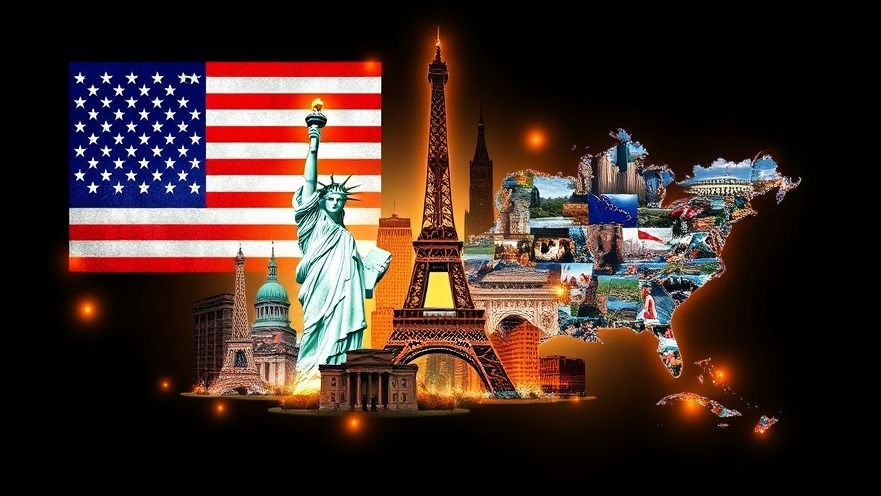
The Debate Over the Concept of 'The West'
In a world where geopolitical alliances and cultural identities are evolving rapidly, the question of what constitutes "the west" remains contentious. Historian Georgios Varouxakis has taken a unique stance in his book, The West: The History of an Idea, arguing that Europe, rather than America, has historically been the core of the western identity, while America has behaved more like an offshoot. This fresh perspective raises profound questions at a time when the very fabric of what 'the west' signifies is under scrutiny.
Historical Context: The Emergence of 'The West'
The common narrative suggests that the concept of the west emerged during the late 19th century, primarily used by the British to justify imperial enterprises. However, Varouxakis challenges this assumption, pointing to French writers in the 1820s who recognized a shift in the term's applicability. As fears of Russian expansionism loomed over Europe, the term 'the west' began to distinguish the region not just geographically but politically, suggesting a united front against antagonistic forces.
Cultural Connections: Why This Matters Today
Understanding 'the west' is critical for digital nomads, as they traverse various countries that embody these concepts in diverse ways. Knowing the historical underpinnings of regions can enhance a traveler’s experience, providing deeper insights into local cultures. Recognizing that America’s influence may not be as central as previously believed offers digital nomads a nuanced perspective as they engage with different cultures.
Parallel Examples of Shifting Cultural Identities
Just as Varouxakis critiques the idea of an American-led west, we see other examples where traditional power dynamics are challenged. For instance, countries in Asia, once considered Eastern, are rising in global influence, blurring the lines of cultural identities. This ongoing shift compels digital nomads to remain adaptable and open-minded, fostering richer intercultural exchanges.
Future Predictions: Changing Alliances and Influences
As the geopolitical landscape shifts, future identities of what constitutes the west may lean more heavily on European values and ideologies. Varouxakis predicts that while the U.S. may retreat into isolationism from time to time, Europe will likely continue to assert its foundational role in shaping the concept of the west. For digital nomads, this means adapting their understanding of cultural touchstones as they travel through a Europe that may redefine its relationship with the world.
Actionable Insights for Digital Nomads
For travelers seeking to deepen their cultural immersion, this reevaluation of the west serves as a reminder to embrace historical contexts. Engaging with local histories, understanding power dynamics, and challenging simplistic narratives will enhance their experience immensely. By fostering a more nuanced view, digital nomads can participate more meaningfully in their surroundings.
In conclusion, as we navigate a changing global landscape, the interpretation of what it means to be part of 'the west' evolves. Keeping an open mind about historical influences not only enriches our travel experiences but also encourages us to engage empathetically with communities worldwide.
As a digital nomad, explore the insights from this discussion and consider applying them in your travels to foster meaningful connections and cultural understandings.
 Add Row
Add Row  Add
Add 




Write A Comment